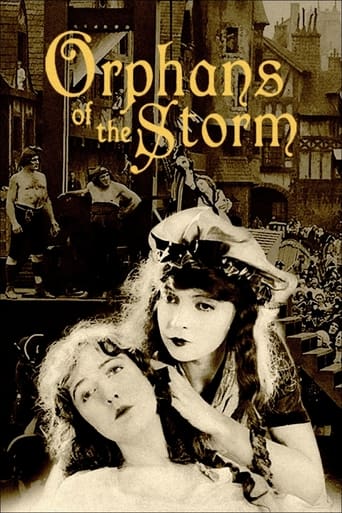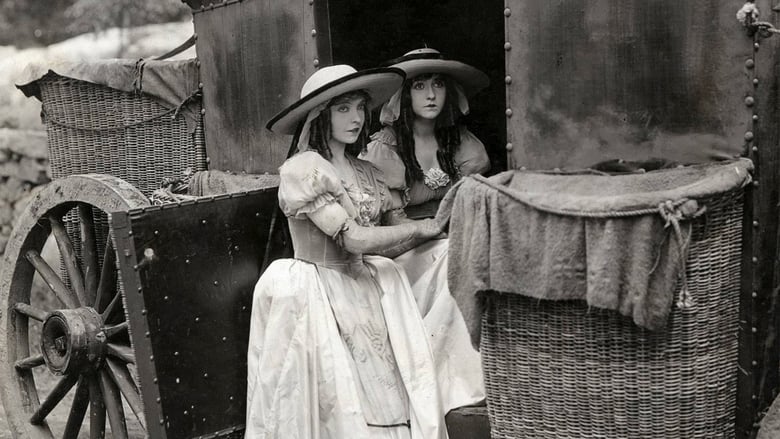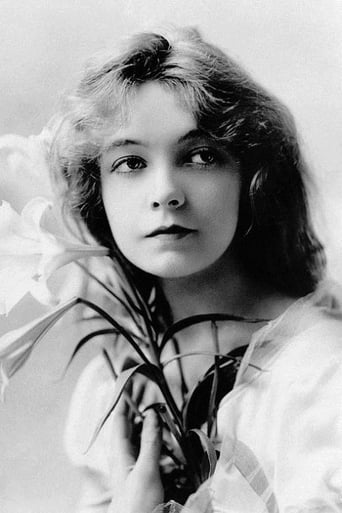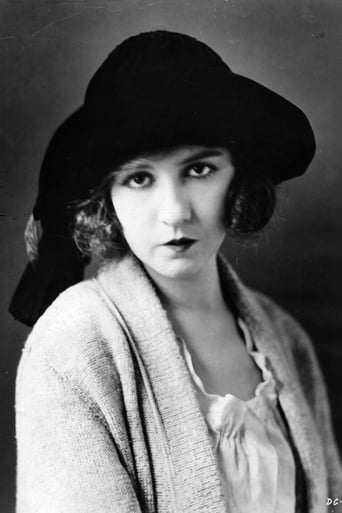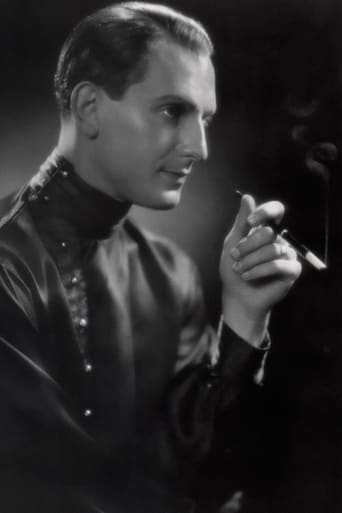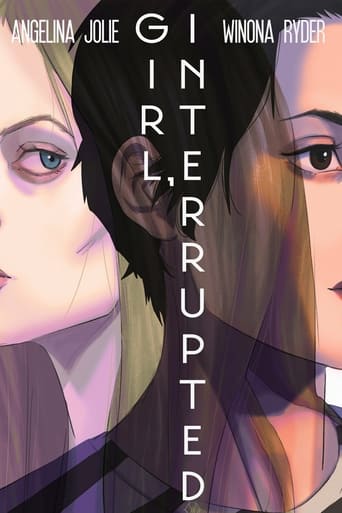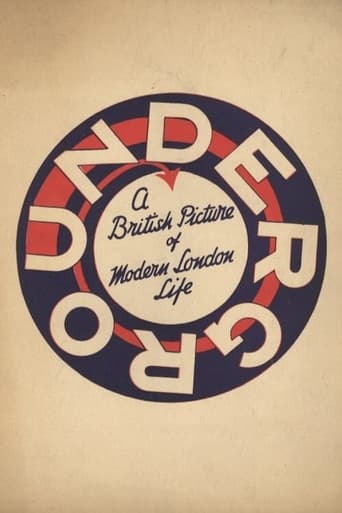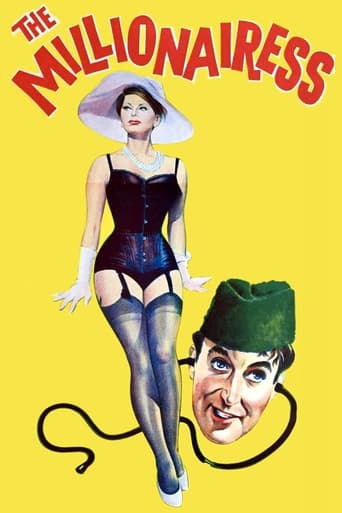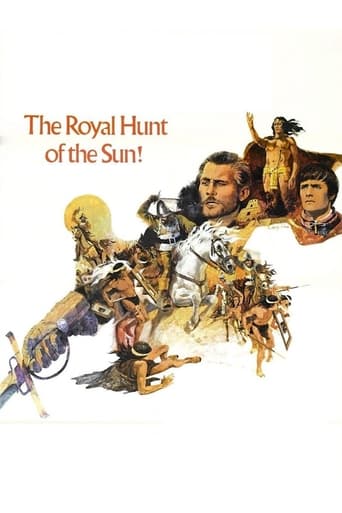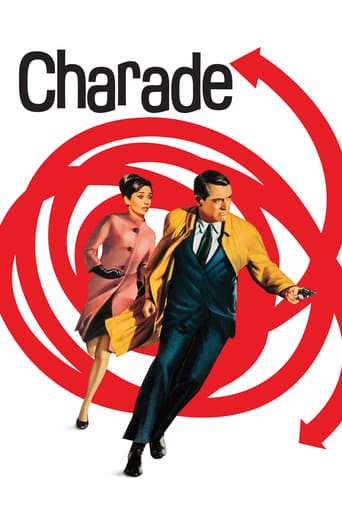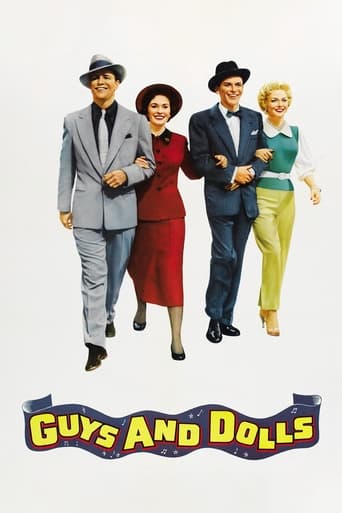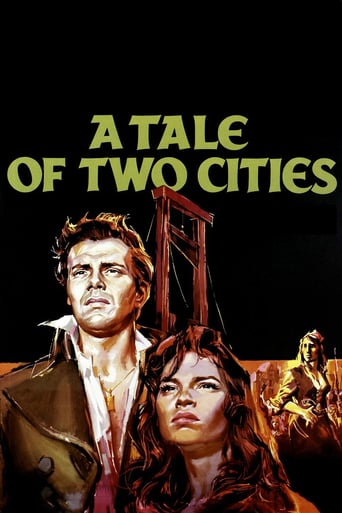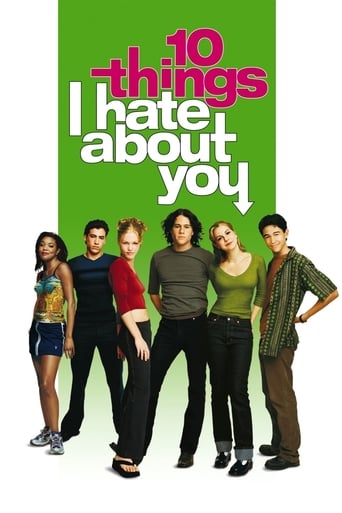Orphans of the Storm (1921)
France, on the eve of the French Revolution. Henriette and Louise have been raised together as sisters. When the plague that takes their parents' lives causes Louise's blindness, they decide to travel to Paris in search of a cure, but they separate when a lustful aristocrat crosses their path.
Watch Trailer
Free Trial Channels
Cast


Similar titles
Reviews
What a waste of my time!!!
Absolutely the worst movie.
Strong acting helps the film overcome an uncertain premise and create characters that hold our attention absolutely.
The movie turns out to be a little better than the average. Starting from a romantic formula often seen in the cinema, it ends in the most predictable (and somewhat bland) way.
D.W. Griffith was essentially the father of epic cinema. While there were some epic films before his landmark achievement "The Birth of a Nation" (most notably "Cabiria" and "The Last Days of Pompeii"), epic cinema wasn't really all too popular notable before Griffith came along.As influential and innovative as it may be D.W. Griffith's "The Birth of a Nation" certainly isn't for everyone, because of the harsh racism and glorification of the dreaded Ku Klux Klan. However, even if you are highly against THAT film, I still think that some of his other epics are worth a look!His best is probably "Intolerance", but another great one that comes to mind is this film, "Orphans of the Storm"!Set during French Revolution, this grand historical epic, to put it simply, mainly centers on the loving bond of two sisters (played by two actual sisters, Lilian and Dorothy Gish) and their tragic separation and attempt to find each other again. Along the way, there's action, adventure, and some true melodrama as well as some truly innovative filmmaking.The editing and filmmaking techniques used here are truly influential and are still used to this day. Griffith's lens really manages to capture the intensity of certain moments thanks to his genius editing and cinematic eye.However, I must warn you, the film is LONG! In fact, the only problem I have with it is its length. It really dragged at times and I'm sure that if you cut out a couple of scenes the film would still work just fine.That being said, "Orphans of the Storm" is a true epic masterpiece. There's many shots here that deserve to be framed and hung in a museum somewhere!
Certainly, with this film, Griffith had lost none of the flair and innovation that were to desert him later on in the 20s. The cross cutting worked amazingly at the climax of the film as Danton's troops race to rescue Henriette from the guillotine - I was on the edge of my seat.Lillian Gish is one of the greatest of actresses but it is interesting that when she was teamed with her sister, Dorothy was always given the more interesting part. In this film she plays the blind Louise and she is able to add some whimsical comedy bits to her role (polishing her shoes, stretching when she steps out of the carriage).By combining real historical figures and fictional characters in an exciting story of the French Revolution you feel you are watching "living history". The film takes some time to get into the main story but once it does - there is no stopping it!!!Baby Louise is left at a foundling home by people that have slain her father. Baby Henriette is being left by her father at the same home because poverty has left them destitute. When he sees Baby Louise on the snowy steps he is over come with remorse and takes them both home. They find a note in a locket with Louise's name and the words "Save her" - also a purse of gold coins.As the years pass Henriette's parents die of a fever that has also left Louise blind. On their way to Paris Henriette catches the eye of an evil nobleman who is determined to take her to a gala fete he is givingeven if it means kidnapping her - which he does!!! At the fete Henriette is frantic, calling for help which she gets from a kind nobleman Chevalier de Vaudrey (Joseph Schildkraut) who after a duel whisks her away to lodgings. Louise has been taken by an ugly old crone (the magnificent Lucille La Verne) who forces her to sing in the street ("you'll shiver better without that shawl") and when Louise refuses throws her into a rat infested cellar. Pierre (Frank Puglia) the youngest son who is taunted and bullied by his mother and older brother becomes Louise's protector. After a realistic fight in which he stands up to his family - he then helps Louise find her sister.Henriette and Vaudrey fall in love. She also helps Danton (Monte Blue) escape a rogue mob thus gaining an enemy in Robespierre (Sidney Herbert) whom she accidentally snubs. Vaudrey's mother, Countess De Linieres visits Henriette to ask her to give him up and when there finds that Louise is the daughter she was forced to give up. Henriette hears Louise singing in the street and calls to her but before they can be reunited she is arrested because she gave shelter to an aristocrat (Vaudrey).It all ends happily with a picnic in a rose garden (I, too, was glad that Pierre was saved and allowed to end his days happily under the care of Countess De Linieres).Fortunately the humour of Creighton Hale is kept to a minimum. The gala fete sequence is beautiful set with tableaux depicting famous paintings of the day (Fragonard's "The Swing").Highly recommended.
By today's standards, ORPHANS IN THE STORM would be considered way too melodramatic or believable. There are just so many improbable situations and far from subtle moments. However, when you realize that back in the early 1920s this was not considered the case, you can appreciate the film so much more. Now this does not mean that every silent movie abounded with these elements, but they were far more acceptable then than they are now.Lillian Gish and her real-life sister, Dorothy, star as the two orphaned sisters. One, Dorothy, is actually the daughter of a Countess that was left on the steps of the church, but they are as devoted as any two sisters can be. Years later, the parents that raised them died from plague and Dorothy was left blinded. So, Lillian decides to take her sister to Paris to see if the doctors there can help restore her sight. Unfortunately for them both, they leave just as the French Revolution is about to erupt (talk about your lousy timing).On the way there, the girls are met by a slimy nobleman. He wants to rape Lillian and arranges for some thugs to kidnap her--leaving blind Dorothy to wander the streets at night! This is a pretty harrowing moment in the film and ultimately an evil lowlife finds her and takes her to live in her subterranean lair--figuring she can use Dorothy's blindness to beg for lots of coins. Dorothy doesn't want to but is tortured into compliance.In the meantime, Lillian arrives at a debaucherous party where the nobleman plans on raping her in front of his party guests. However, one nice guy (who turns out to be Dorothy's biological half-brother, a count) sees her plight and helps her escape. This earns the ire of the nobles but the guy is too fundamentally decent to allow this.A bit later, some more scumbag nobles (and most of them are in the movie) tries to have the Revolutionary leader, Danton, murdered. The injured man stumbles about the street as the assassins are following until he is found and rescued by Lillian.There is a budding romance between Lillian and the Count, but before it can progress any further, the Count is imprisoned for having the affront to want to marry a commoner and Lillian is thrown into a prison for "fallen women". I never heard of such a place and assume it was all made up for the movie! A short time later, the Revolution occurs and as a result the two lovers are released from prison. However, Dorothy is still missing and she only comes to light when Lillian and the Count are brought before the court for being monarchists! They are both sentenced to death as Dorothy is in the crowd and recognizes her sister and vice-versa. They are drug away to the guillotine several miles away as Dorothy screams and yells like a banshee. Minutes later, Danton arrives and realizes the miscarriage of justice has occurred. He makes an impassioned plea and gets the court to rescind the execution order. But, the carts with the two lovers is almost at the scaffold so Danton and his men race to rescue them at the very last second (Lillian already has her head inside the Guillotine when they arrive). The final scene shows everyone happy together. Huzzah! Despite being so melodramatic and having so many coincidences, the film's energy and drama keep you riveted. In other words, you KNOW it's over-the-top but because the movie is so well-crafted, you don't mind. Huge and impressive sets and costumes abound and the print from Kino Video was excellent. By the way, the apartment where Lillian lived in much of the movie is recognizable from several other films, including another D. W. Griffith film, BROKEN BLOSSUMS and I also recognized it from some of the FRANKENSTEIN movies.An interesting point about this film is that several times during the film, the title cards talk about the "evils of Bolshevism"--saying that the French Revolution was akin to the recent Russian Revolution. While there are definite parallels, this was more a statement about the times in which the film was made as opposed to 1789.A very important film historically and one of the last films of Griffith to make money. Unlike his evil BIRTH OF A NATION, this film deserved the accolades and success it attained.A final note: In the movies, Danton was rightfully shown as one of the decent leaders of the Revolution who fought for justice, not mass murder. However, they never mentioned that ultimately he was guillotined at the end of the era for questioning the direction of the revolutionary government, and in particular, Robespierre. Only a few weeks later, in reaction to this execution, Robespierre himself was executed and the Reign of Terror came to an end.
This film demonstrates Griffith's genius in creating a massive scale and in linking disparate plot elements. By 1921, however, some of Griffith's innovations had become mere mannerisms, particularly the cross-cutting that leads to his climax, as introduced in "Birth of a Nation" and used, with powerful effect, in "Hearts of the World." The cross-cutting at the end of "Orphans" goes on much too long. Lillian Gish must have grown old staring down into the basket. Some techniques -- a blank screen followed by a face (memory) and a narrow focus on a face (point of view), for example, are still effective. I know that over-elaboration is a staple of the silent screen, but at times, it is over-the-top here. Constrast, for example, the more subtle approach of an actor like Alice Terry. Danton did argue for moderation, once he believed that the Revolution had succeeded. His oration in this film is, like much of it, simply unbelievable. The idyllic ending also strains credulity. How did this particular group of aristocrats escape the blade and retire to a country estate?

